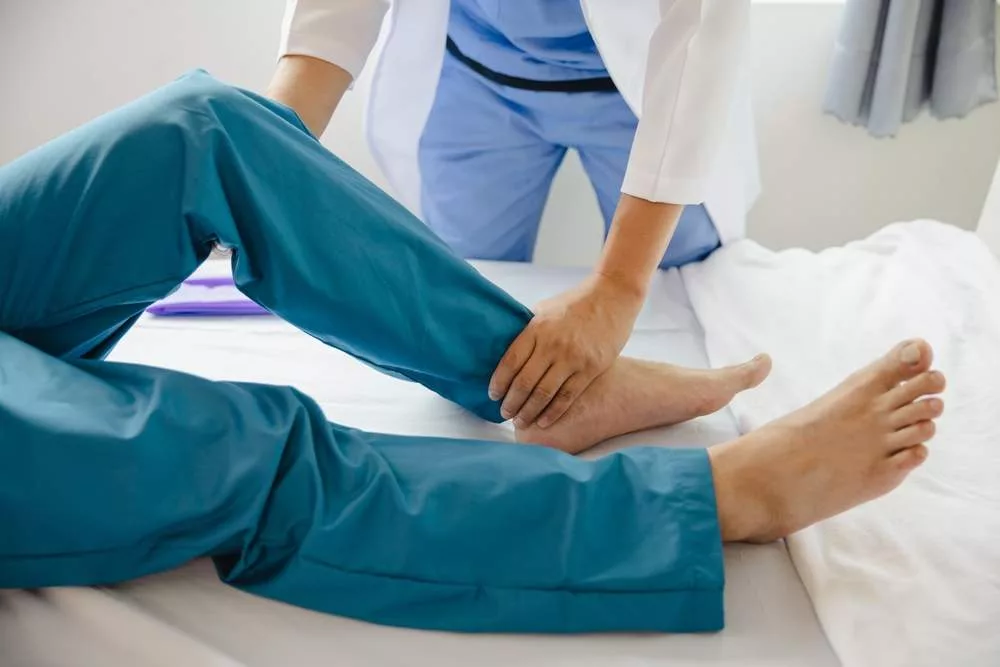After experiencing a car accident, it is crucial to prioritize your well-being and seek comprehensive treatment that addresses not only your physical injuries but also your mental and emotional recovery. Taking a holistic approach to healing can significantly impact your overall well-being and enhance your chances of a full recovery. By combining various therapies, such as physical therapy, counseling, and chiropractic care, you can embark on a journey of comprehensive healing that addresses the impact of the accident on your life. Check out these valuable insights and recommendations to help you navigate the path toward well-rounded treatment after a car accident.
Physical Therapy

Physical therapy plays a vital role in car accident recovery by focusing on restoring physical function and reducing pain. A licensed physical therapist will assess your injuries and develop a personalized treatment plan that may include exercises, stretches, manual therapy, and modalities like heat or ice therapy. Physical therapy aims to improve mobility, strength, and flexibility while reducing pain and promoting overall physical well-being.
Pain Management
Physical therapists are skilled in identifying and treating the sources of pain resulting from car accidents. They may utilize various techniques, including manual therapy, therapeutic exercises, and heat/cold therapy, to alleviate pain and promote pain management strategies. Through targeted interventions, physical therapy can also help reduce reliance on pain medications and reduce the length of treatment necessary.
Injury Recovery & Healing
Physical therapists play a crucial role in facilitating the healing process following car accident injuries. They employ techniques to promote tissue healing, prevent scar tissue formation, and improve blood circulation to injured areas. Additionally, they educate you on proper body mechanics and ergonomics to prevent further injury and optimize your recovery.
Restoring Mobility & Function
Car accidents can lead to injuries that impair mobility and limit functional abilities. Physical therapists assess your condition and develop individualized treatment plans to restore mobility, strength, and flexibility. They guide you through exercises and stretches that help rebuild muscle strength, improve joint range of motion, and enhance overall functioning, enabling you to regain independence and perform daily activities more easily.
Occupational Therapy
Occupational therapy focuses on helping individuals regain independence and functionality in their daily activities after a car accident. An occupational therapist will evaluate your abilities and develop strategies to improve skills necessary for daily tasks, such as dressing, bathing, and cooking. They may recommend assistive devices or modifications to your home or workplace to enhance your ability to perform activities and achieve a higher quality of life.
Enhancing Functional Abilities
Car accidents can result in physical impairments, such as limited mobility, reduced strength, or coordination challenges. Occupational therapists employ therapeutic exercises and activities to address these limitations and improve functional abilities. They work on strengthening muscles, enhancing coordination, and refining fine motor skills required for tasks like grasping objects, writing, or using utensils. By targeting specific areas of impairment, occupational therapy helps you regain and improve essential skills needed for independent living.
Restoring Independence
Occupational therapists specialize in helping individuals regain independence and functionality in their daily activities. Following a car accident, you may experience difficulties with tasks such as dressing, bathing, cooking, or driving. Occupational therapists assess your abilities and develop customized strategies and techniques to enhance your skills and facilitate your reintegration into daily life. By focusing on adaptive techniques, assistive devices, and modifications, occupational therapy promotes self-sufficiency and empowers you to regain control over your life.
Workplace & Vocational Rehabilitation
If your car accident injuries affect your ability to return to work, occupational therapists can assist in vocational rehabilitation. They evaluate your job requirements, identify potential challenges, and develop strategies to accommodate your needs. Occupational therapists can recommend ergonomic modifications, assistive devices, or adaptive techniques to enable you to perform your job duties safely and effectively.
Massage Therapy

Massage therapy provides a safe and nurturing environment where individuals can relax, unwind, and release tension. The therapeutic touch and supportive presence of a massage therapist can contribute to a sense of emotional well-being and help individuals cope with the physical and psychological aftermath of the accident.
Pain Relief
Massage therapy can help alleviate pain associated with car accident injuries. By targeting affected muscles, tendons, and soft tissues, massage therapists use various techniques, such as effleurage, petrissage, and deep tissue massage, to reduce muscle tension, promote circulation, and release endorphins. This can lead to pain relief and improved comfort levels.
Relaxation & Stress Reduction
Car accidents can be traumatic and result in heightened stress levels. Massage therapy offers a calming and relaxing experience, promoting a sense of tranquility and reducing stress. Through soothing touch and rhythmic movements, massage therapy activates the body’s relaxation response, helping to relieve anxiety and promote overall well-being.
Enhanced Circulation & Healing
Massage therapy stimulates blood flow and lymphatic circulation, which can aid in the healing process. Increased circulation brings oxygen and nutrients to injured tissues, promoting tissue repair and reducing inflammation. This can help accelerate recovery and decrease the risk of secondary complications.
Mental Health Counseling
Car accidents can have a significant impact on your mental and emotional well-being. Mental health counseling can help you navigate the emotional aftermath of the accident. A trained therapist can assist you in managing anxiety, post-traumatic stress disorder (PTSD), depression, or other psychological challenges resulting from the accident. Through counseling, you can develop coping mechanisms, process trauma, and regain emotional balance.
Trauma Processing
Mental health counseling offers a safe and supportive environment to process and work through how to mentally recover from a car accident. Therapists trained in trauma-focused therapies can assist in reducing the impact of traumatic memories and facilitating emotional healing.
Anxiety & Stress Management
Car accidents often result in heightened anxiety and stress levels. Mental health counseling equips individuals with coping mechanisms and stress management techniques to navigate the emotional aftermath of the accident. Therapists can teach relaxation exercises, mindfulness practices, and cognitive restructuring strategies to help individuals manage anxiety symptoms and regain a sense of emotional stability.
Depression & Emotional Well-Being
Car accidents can also lead to feelings of sadness, depression, or a loss of interest in previously enjoyed activities. Mental therapy after a car accident provides a supportive space to explore and address these emotions. Therapists can assist in identifying underlying factors contributing to depression, develop coping strategies, and work towards restoring emotional well-being.
Chiropractic Care
Chiropractic care focuses on diagnosing and treating musculoskeletal injuries, particularly those affecting the spine. A chiropractor may use manual adjustments, spinal manipulations, massage therapy, and other techniques to alleviate pain, restore healthy alignment, and promote healing. Chiropractic care can be particularly beneficial for addressing neck and back injuries commonly associated with car accidents.
Improved Pain Relief
Chiropractors are trained to identify and treat musculoskeletal injuries, such as whiplash, neck pain, back pain, and joint pain, which are common after car accidents. Through manual adjustments and spinal manipulations, chiropractors can alleviate pain and reduce discomfort by restoring proper alignment and healthy functioning to the affected areas.
Non-Invasive Treatment
Chiropractic care offers a non-invasive alternative to more aggressive treatment options like surgery or medication. Chiropractors utilize hands-on techniques and gentle adjustments, avoiding the need for invasive procedures. This can be particularly beneficial for individuals who prefer a drug-free and non-surgical approach to their recovery.
Holistic Approach
Chiropractors often take a holistic approach to car accident therapy. They not only address the physical injuries but also consider the impact of the accident on your overall well-being. They may incorporate additional therapies, such as therapeutic exercises, massage therapy, or nutritional guidance, to provide a comprehensive treatment plan that supports your body’s healing process on multiple levels.
See a chiropractor specializing in car accident injuries and learn more about how long you should go to therapy after a car accident so you can experience a full recovery. Visit Affordable Chiropractic Killeen for car accident chiropractors near you and get started today with a holistic approach to your car accident recovery.

